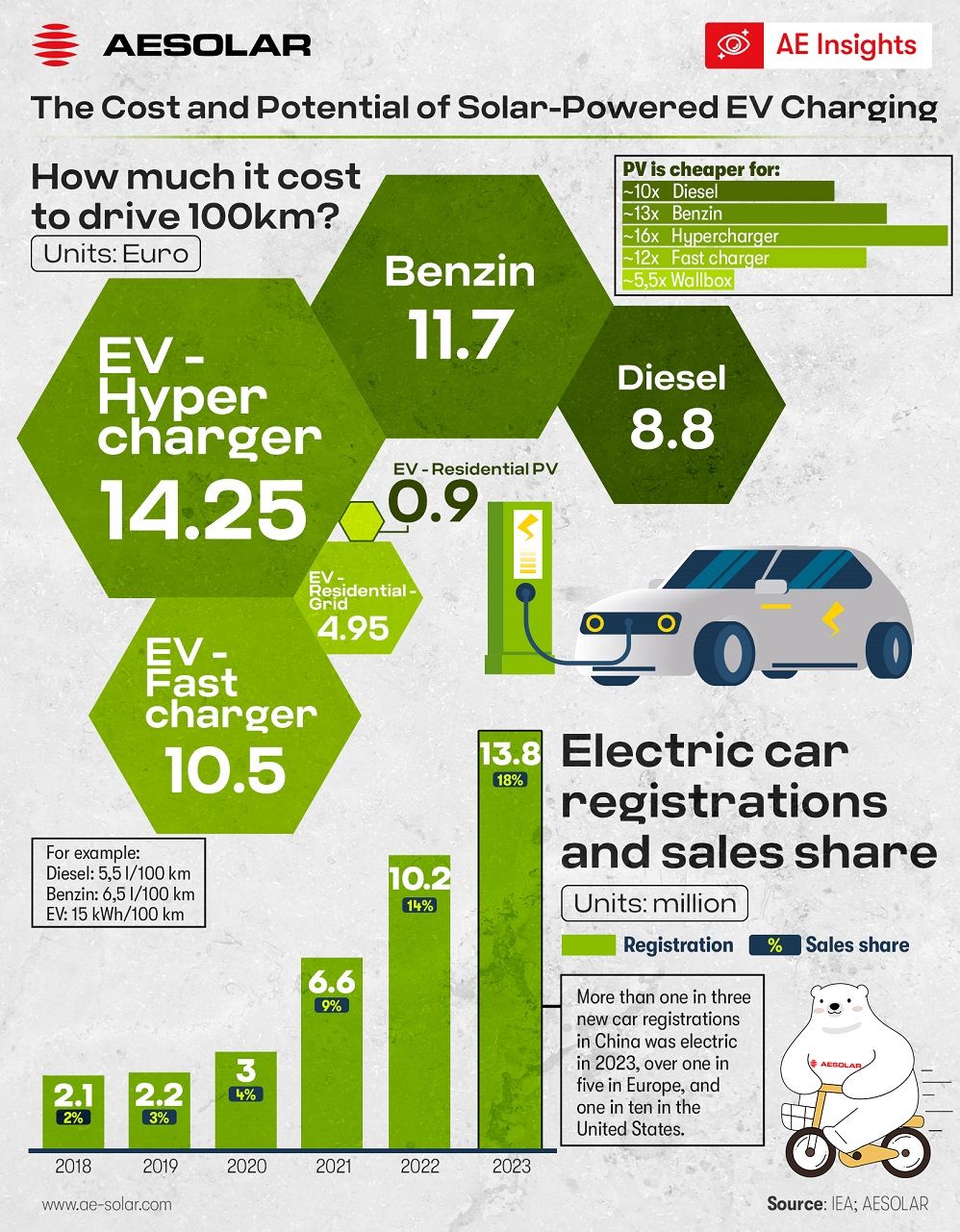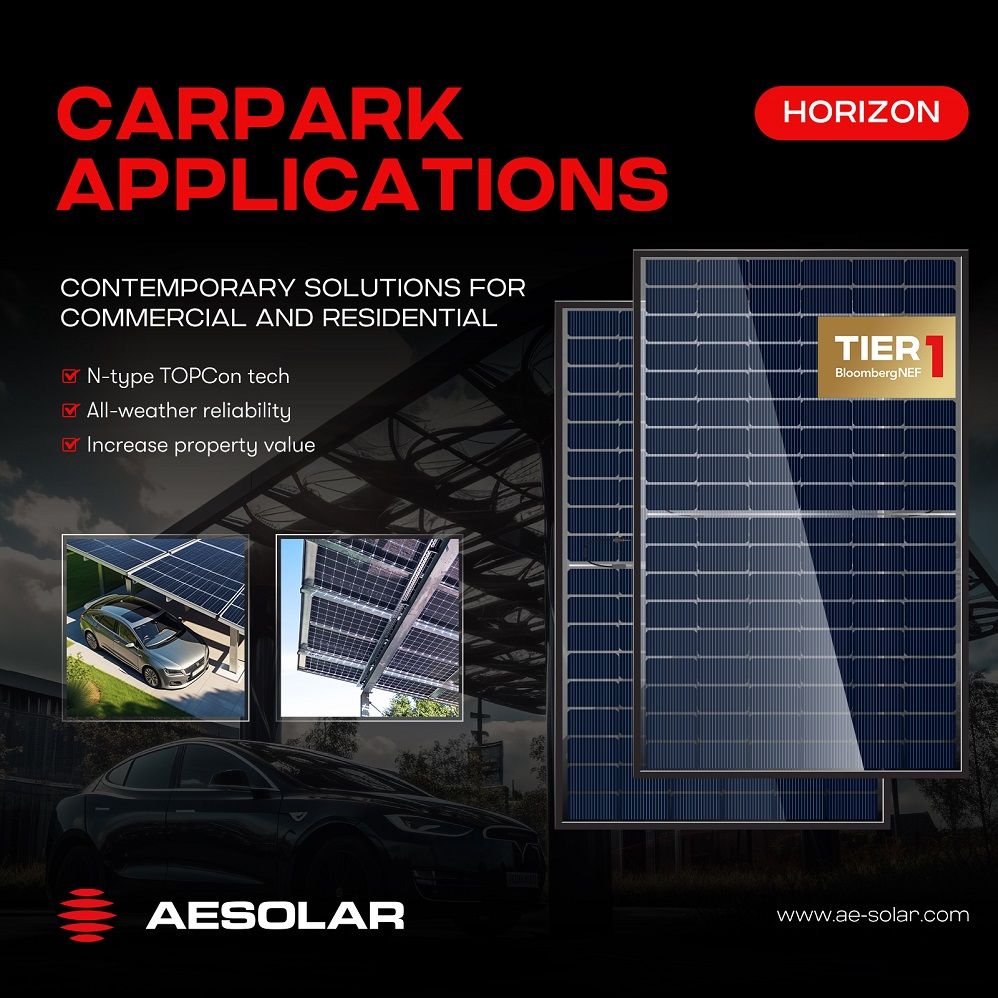Electric vehicles (EVs) are taking the global market by storm, as highlighted by the rapid increase in EV registrations over recent years. In 2018, only 2% of new car registrations were electric, but by 2023, this figure skyrocketed to 18%. Notably, in China, over one in three new car registrations in 2023 was electric, with similarly strong numbers in Europe and the United States.
The Cost of Driving 100km: How Solar Changes the Equation
While EVs offer environmental benefits, the cost of charging varies widely depending on the energy source. Here’s a breakdown of what it costs to drive 100km for different vehicle types and charging options:

Switching to residential PV charging dramatically reduces the cost to drive 100km, making solar power up to 10x cheaper than diesel and 13x cheaper than gasoline. Solar charging is also notably cheaper than all types of grid-based charging, reinforcing its role as an ideal solution for EV owners aiming to reduce both costs and carbon footprints.
Why Solar Carports for EVs Make Sense
A solar-powered EV carport offers a dual advantage: it generates renewable energy on-site and provides shelter for vehicles. With solar charging, EV drivers can avoid the unpredictability of fuel prices and electricity rate hikes, making it a cost-effective and environmentally-friendly choice. Compared to other charging methods, a solar carport reduces the dependency on public charging infrastructure and grid electricity, allowing EV owners to power their vehicles directly from the sun. By utilizing this approach, the cost of driving drops to as low as 0.9 Euros per 100km, which is up to 10 times cheaper than diesel and 13 times cheaper than gasoline. This can result in substantial savings over time, especially for frequent drivers.

Solar carports are not only financially appealing but also an efficient solution to the increasing demand for clean energy infrastructure. They can be integrated seamlessly into residential or commercial spaces, where they capture sunlight to power EVs and even feed excess energy back into the grid or a battery storage system. As governments and organizations push for carbon-neutral transportation, solar carports offer a tangible, scalable solution that directly aligns with these sustainability goals. The transition to renewable energy-powered EVs will play a crucial role in achieving global emission targets, and solar carports are set to become an essential part of this transformation.
Solar carports are not only financially appealing but also an efficient solution to the increasing demand for clean energy infrastructure. They can be integrated seamlessly into residential or commercial spaces, where they capture sunlight to power EVs and even feed excess energy back into the grid or a battery storage system. As governments and organizations push for carbon-neutral transportation, solar carports offer a tangible, scalable solution that directly aligns with these sustainability goals. The transition to renewable energy-powered EVs will play a crucial role in achieving global emission targets, and solar carports are set to become an essential part of this transformation.
At AESOLAR, we’re paving the way for a greener future with innovative solutions like the Horizon Carport Solar Module. This carport module exemplifies how EV charging costs can be reduced by up to 16 times when powered by solar PV instead of traditional fuel sources. Built with durability and resilience in mind, Horizon meets stringent tests and standards for module and building reliability. Whether for residential or commercial use, Horizon helps ensure low-cost, sustainable transportation by leveraging the power of the sun.
Check out AESOLAR carport solution: Horizon
